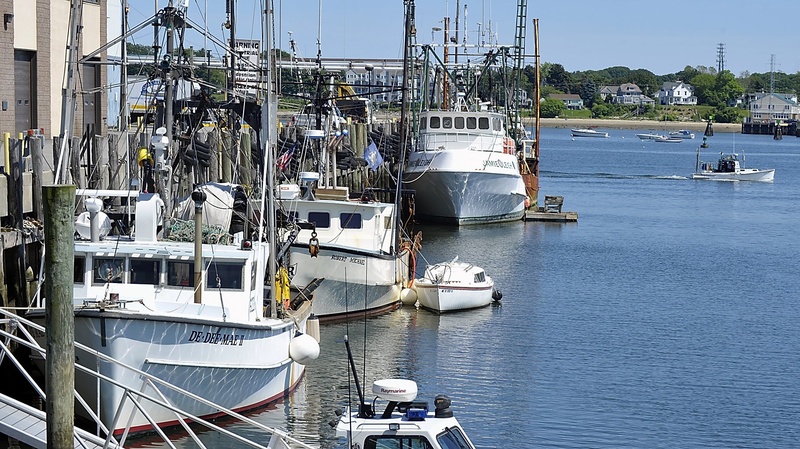Maine’s fishermen must be better informed, more communicative about conditions on the water and responsive to change to survive the constant shifts brought by a warming climate and water that is growing warmer and saltier.
That was the message from about 100 marine biologists, fisheries managers, commercial fishermen and others who shared both scientific findings and anecdotal observations on the changes that are occurring in the Gulf of Maine. The fisheries participants gathered Wednesday in Portland at a two-day Island Institute symposium on climate change and its impact on fisheries in the Gulf of Maine.
The consensus on the changes in conditions was predictable, given the roller-coaster ride over catches and pricing for lobstermen in 2012 and the ongoing crisis over groundfish stocks.
The message from the boats and the marine biologists was the same: From seawater temperatures to lengths of lobster-harvesting seasons, conditions on and in the water are being altered because of both expected and unanticipated climate variations. As a result, participants agreed, fisheries must be prepared to act quickly to respond not just once but many times in the coming years to climate-change fallout.
The symposium represented virtually every sector of Maine’s fisheries, and the event gave them the opportunity to meet and talk about climate change and how it is affecting fishermen and fishing communities, said Rob Snyder, president of the nonprofit Island Institute, based in Rockland.
Not only have there been changes in where species are found, there are new species – such as black sea bass – showing up in areas of the Gulf of Maine where they were not commonly found in the last half-century.
Getting a more complete picture of such changes is essential to fishermen’s livelihoods, as well as to fisheries management agencies which establish catch rates and specify the best practices to ensure that species will not be fished out, Snyder said.
The Gulf of Maine has experienced significant warming over the last 40 years, said biologist and ecologist Andrew Pershing of the University of Maine/Gulf of Maine Research Institute. And since 2004, the warming has accelerated to 10 times the rate of previous years.
“It’s unlike anything we’ve ever seen before,” he said.
That warming trend rippled out into a number of changes, including extending the lobster season by three to three-and-a-half weeks at both ends. In 2012, that brought earlier and larger catches that contributed to a crash in the lobster market and prices that fell to a low of about $2.50 per pound.
These types of climate developments, which many scientists predict will continue, will compel fishermen to adjust when, where and for what they fish. Accomplishing that will require planning and political will, presenters said. Flexibility and keeping stocks at a sustainable level are critical issues.
“It makes sense to be very careful with emerging fisheries,” said Malin Pinsky, an ecologist with Rutgers University. Fishermen, consumers and managers cannot just assume that new species will replace those that are depleted or disappearing in certain areas.
Management practices must be shaped with attention to the most current scientific and on-the-water fishing information. This means communication among fishermen, scientists and managers is key and that adaptation has to be flexible as climate changes occur.
“Climate change is happening,” Snyder said. But the exact nature and details of the phenomenon – as well as the responses to it – are still controversial and politically charged issues.
The questions fishermen face now are different from those that were overriding concerns even 10 years ago. Now, Pershing said, remaining responsive, agile and flexible in management and in fishing are the driving forces. The overriding goal, he said, is to develop strategies for adaptive and resilient fisheries.
Send questions/comments to the editors.



Comments are no longer available on this story